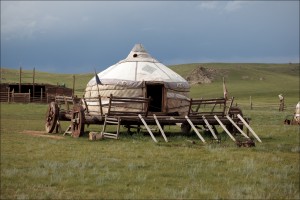THATCamp AHA 2015 will feature many unconference-style sessions, which we’ll schedule on the day of the event. (If you’re registered, we encourage you to propose a session soon.) We’ve also pre-scheduled two hands-on workshop sessions. One, imagining a collaborative history of mass incarceration, is described in a previous post and will be led by the Humanities Action Lab at The New School. The second workshop, led by Caleb McDaniel, Assistant Professor of History at Rice University, is described below. Stay tuned to the THATCamp AHA schedule link for updates.
This workshop will explore the use of Twitter as an experimental platform for historical argument and narrative.
Many academic historians now use Twitter as a valuable tool for social networking, as seen by the explosive growth of the #Twitterstorians community. Some historians are also beginning to embrace the medium as a way to do “public history” and engage wider audiences.
Now that numerous journalists, activists, politicians, and members of the general public also tweet, how should historians bring expertise, questions, stories, and interpretations into the public sphere of social media? What are the best practices we should embrace and the potential mistakes we may want to avoid? How might Twitter be used in the history classroom, or by a historic site or museum? Are there particular kinds of “doing history” that Twitter enables?
In this session, we will first examine a number of kinds of historical Twitter feeds, from “on this day” accounts like @RealTimeWW1 to primary source feeds like @JQAdams_MHS and @MobyDickAtSea. We will also talk about strategies that any historian with a Twitter feed can use, such as chained “Twitter essays” and hashtags. Finally, we will discuss new examples of history “Twitterbots” like @Every3Minutes and @RedScareBot.
Along the way, Caleb will share tips for Twitter users at all levels of experience, including:
- setting up and managing multiple Twitter accounts
- modifying Twitter profiles and avatars
- understanding hashtags
- scheduling tweets
- using third-party tools like Storify
- a gentle introduction to coding a Twitterbot and using the Twitter API
Whether you are a seasoned Twitterstorian or a Twitter novice, come join us for a hands-on exploration of what it looks like to do history 140 characters at a time.








